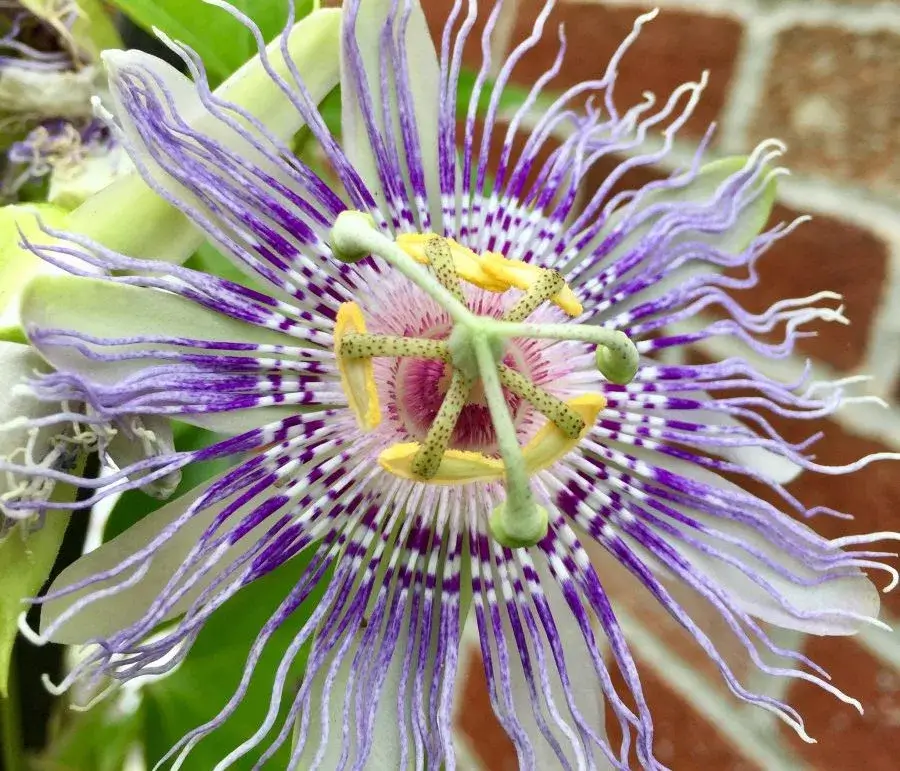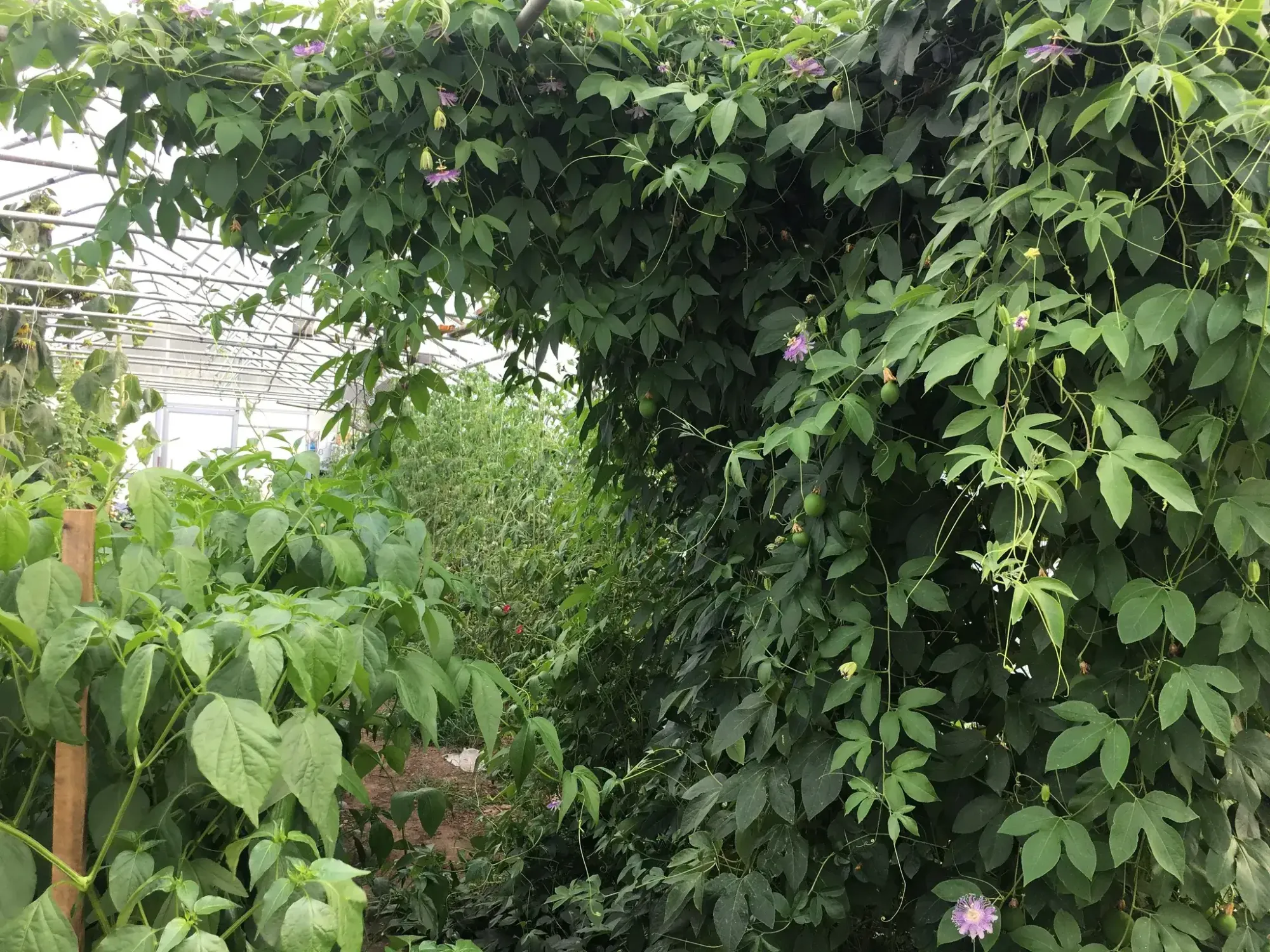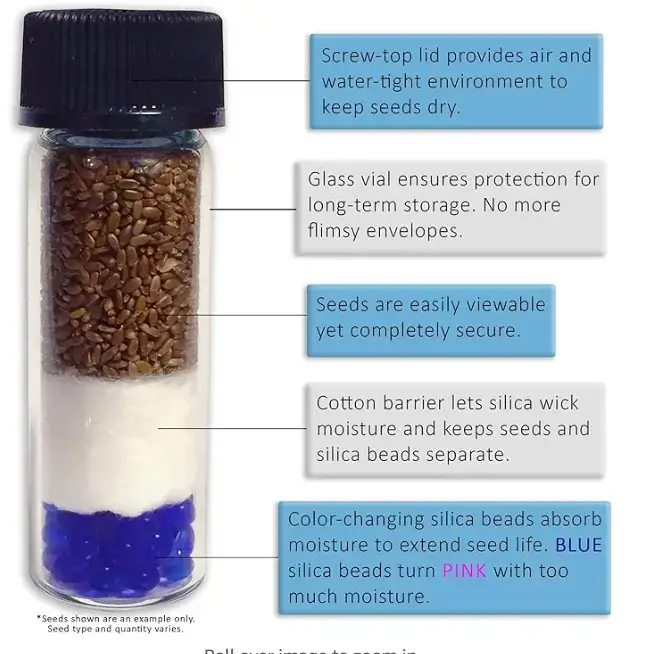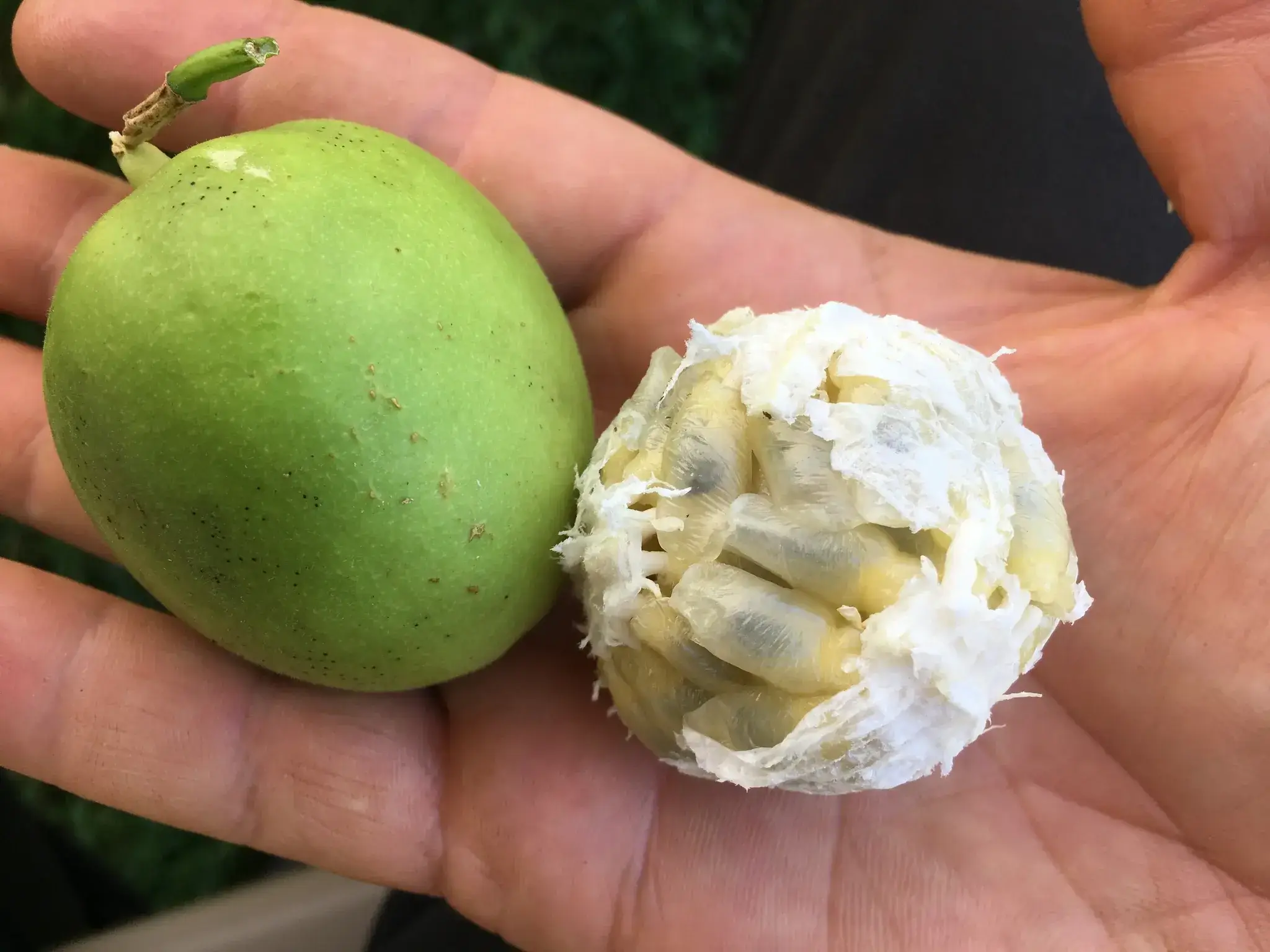Maypop Passion Flower Herb Facts


Maypop passion flower herb, known scientifically as passiflora incarnata, is a fascinating plant with numerous benefits.
This herb is appreciated for its calming properties and culinary uses.
In this article, we will explore how to grow and cultivate passion flowers.
We’ll also discuss the processing methods that unlock their full potential.
The passion vine, native to the United States, produces beautiful flowers that attract bees and carpenter bees for pollination. While its more famous cousin originates from South America, our native variety thrives throughout the southeastern states and produces edible fruit that ripens in early fall.
The carpenter bee is particularly effective at pollinating these vines, squeezing under the stamens to reach the nectar and transferring pollen between flowers. The fruit becomes ready for harvest when it turns from green to slightly yellow and begins to wrinkle, typically falling from the vine when fully ripe.
Though not as sweet as its South American relatives, the native passion vine's fruit offers a unique tropical flavor that can be enjoyed fresh or used in jams and beverages.
Join us as we delve into the world of passion fruit flower passiflora herb and discover its many uses.
Benefits of Passion Flower Herb
Passion flower herb is renowned for its calming effects, making it a popular choice for those seeking natural remedies for anxiety and insomnia. Studies have shown that it may help reduce symptoms of anxiety and improve sleep quality. Additionally, the herb is rich in antioxidants, which can support overall health by combating oxidative stress.
Growing Passion Flowers

Growing passion flowers can be a rewarding experience. Here are some tips to help you cultivate this beautiful plant:
- Choose the Right Location: Passion flowers thrive in full sun, so select a spot in your garden that receives at least 6-8 hours of sunlight daily.
- Soil Requirements: Ensure the soil is well-draining and rich in organic matter. A slightly acidic to neutral pH is ideal.
- Watering: Keep the soil consistently moist but not waterlogged. Regular watering is essential, especially during dry spells.
- Fertilization: Use a balanced fertilizer during the growing season to promote healthy growth and flowering.
Getting Passion Flower Seeds

To get passion flower seeds:
- Buy seeds from a garden store or online seed supplier.
- Collect seeds from ripe passion fruits. Cut open the fruit and scoop out the pulp with seeds.
- Ferment the pulp and seeds in water for 3-5 days to remove the pulp.
- Rinse the seeds and dry them before planting or storing.

Planting Passion Flower Seeds
Here's how to plant passion flower seeds:
- Soak the seeds in lukewarm water for 24-48 hours before planting.
- Plant seeds 1/4 inch deep in well-draining soil.
- Keep the soil moist but not waterlogged.
- Place the pot in a warm, sunny spot or use a heat mat to keep soil temperature around 20-30°C (68-86°F).
- Be patient, as seeds can take several weeks to germinate.
Growing Passion Flowers

Maypop Passion Flower Fruit
Once your seeds sprout, follow these tips:
- Provide full sun or partial shade in hot climates.
- Use rich, well-draining soil with a pH of 6.5 to 7.5.
- Water regularly to keep soil consistently moist.
- Fertilize in early spring.
- Give the vines support to climb, like a trellis or fence.
Processing Passion Flowers
Once harvested, passion flowers can be processed in various ways to maximize their benefits:
- Drying: Hang the flowers upside down in a cool, dark place to dry. Dried flowers can be used to make teas or tinctures.
- Infusions: Steep fresh or dried flowers in hot water to create a soothing herbal tea.
- Extracts: Alcohol-based extracts can be made to capture the herb's active compounds for use in supplements or home remedies.
Culinary Uses
Passion flower can also be used in the kitchen. The flowers and leaves can be added to salads for a unique flavor and visual appeal. Additionally, they can be used to infuse syrups or beverages, adding a floral note to cocktails or desserts.
Conclusion
In conclusion, passion flower herb (Passiflora incarnata) is not only a beautiful addition to any garden but also a versatile plant with numerous health benefits and culinary uses. By understanding how to grow, process, and utilize this herb, you can fully appreciate its potential. Whether you're looking to enhance your garden or explore natural remedies, passion flower is a fantastic choice.
Explore the world of passion flower herb today and unlock its many benefits!
Join Our Mailing List
We're excited about the Gastrorejuvenator Crowdfunding Campaign, and Invite You to Become a Part of It! Join Now
Free Annual Guide
Emerging Trends in the Health and Nutrition Sector 2024: The Ultimate Guide
Click for Free Annual Guide
Discover the latest health and nutrition trends shaping 2024 in our comprehensive guide. From personalized nutrition to sustainable eating, explore the innovations transforming wellness. Click to unlock expert insights and stay ahead of the curve in health and nutrition. Learn More!



